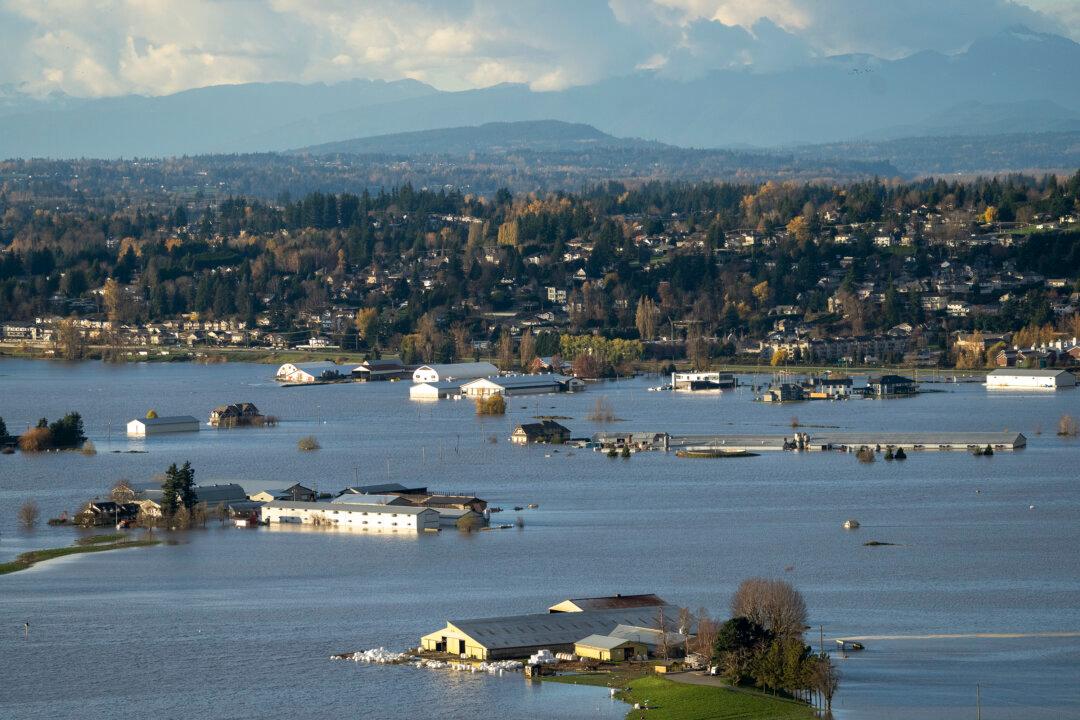Farmers in southern British Columbia are coming together to save livestock as parts of the Fraser Valley remain under water from devastating flooding, says a member of the association that represents the province’s dairy farmers.
Holger Schwichtenberg, chair of the board for the BC Dairy Association, said he was not yet sure how many farmers were working to move their milking cows, but in such situations, they would reach out for help to get their animals off site.





